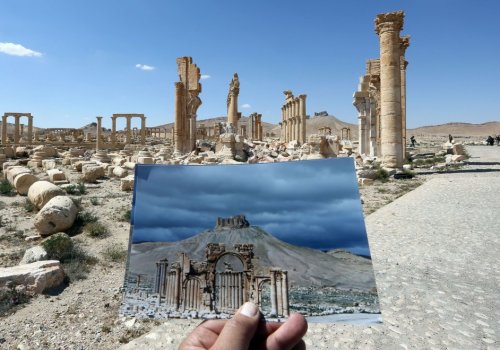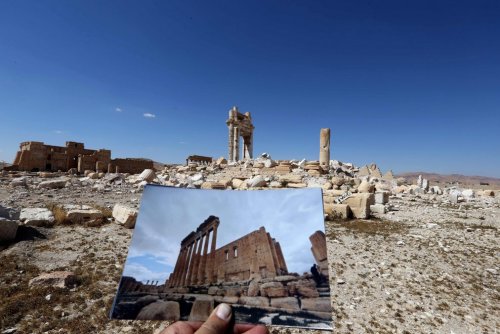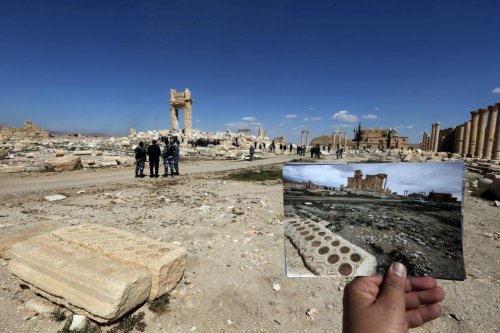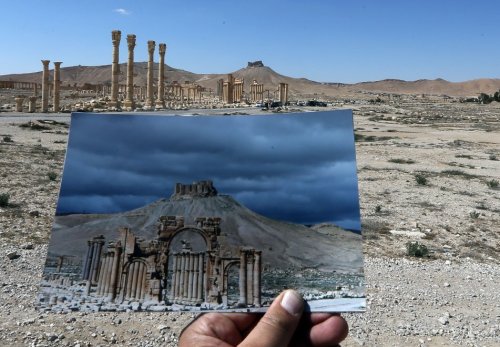Something I’m Not 100% Sure How To Put Into Words B/c Flu But Nonetheless Woke Up Thinking About Is:
Something I’m not 100% sure how to put into words b/c flu but nonetheless woke up thinking about is:
it’s so disappointing when fiction that purports to show the “villain’s side of the story” actually just flips the roles, making the original villain a precious cinnamon roll and the original hero 100% garbage. it’s such a lazy narrative and it makes me wonder if you’ve really thought about *why* you want to tell the story you’re telling.
and like – there’s nothing *wrong* with just writing a power fantasy wherein your villainous fave comes out on top. but it’s always kind of unnerving to me when fandom will jump on those narratives without fully thinking them through, and thus react just as vitriolically to the new villain as an older audience did to the original.
Maleficent has this problem, Orange Is the New Black has this problem, The Shape of Water to some degree has this problem (though concentrated in the fandom and not necessarily in del Toro’s narrative). it’s really bizarre to me how people will walk into a “villain redeemed” narrative and come out with their hatred intact, just shifted to a new, more “deserving” target. like, do you not see how recursive that is? and are you not just a little bit troubled by the knowledge that your sympathies are that easy to manipulate by a shift in narrator?
again, it’s fine if it’s just a power fantasy, but if you’re trying to make any kind of overarching point about villains and narratives and redemption, it’s at least *prudent* not to just switch the vantage points.
More Posts from Psyxe and Others
I am mere centimeters away from writing a full on essay about how the “goblins are inherently antisemitic” myth spawned by this website propagates misinformation, displays a huge misunderstanding of what folklore is and does, and contributes to an environment that distracts people from how antisemitism actually operates and the ways in which it’s dangerously on the rise in our current climate–something which, surprise surprise, has almost nothing to do with little green fairy men

So Delta flight 302 flew in to San Juan, picked up passengers, and threaded one arm of Irma on the way out. The pilot basically said “hold my beer” and took on a hurricane.
I am not entirely convinced that Poe Dameron was not flying this plane, to be honest.
You can read the Twitter thread here.
also I noticed a lot of people (i.e. liberals) framing the discussion around love and violence as if fighting oppression or oppressors (including in immediate self-defense) was somehow antithetical to being a loving person, or to being committed to loving ourselves and other people in our communities, or to recognising love as a revitalising and necessary force in activism and in life in general, such that we need to utterly shun violence as something that’s always morally reprehensible (and thus, to shun people who commit violence in self-defense as morally reprehensible) in order to be capable of love
and I started thinking about how a lot of edgy radicals & leftists essentially agree with this but in the opposite direction–as if we need to utterly shun love as a necessary & revitalising force in order to be capable of revolutionary action or self-defense
in the same way that liberals will say “we must love and see the humanity in our oppressors, so that we cannot use violence against them even if we are ourselves the targets of violence” (or–more likely, since these kinds of people aren’t likely to be people who have ever been seriously targeted by violence–”more immediately & materially marginalised people shouldn’t use violence even if they are themselves the targets of violence”), edgy radicals will say “we must be prepared to use violence against our oppressors, and therefore we must hate and demonise them, as if they are somehow essentially, ontologically evil by virtue of their identities.” & I think that both of these approaches are fundamentally misguided
of course we must be prepared to use violence in self-defense against institutions that commit violence against us–but ultimately, the basis of revolution or whatever cannot be hatred and it cannot be the romanticisation of violence for the sake of violence (and again, a lot of these edgelord-y people have probably never been seriously targeted by violence, don’t have bodies that are marked out for violence–they just like the thrill of it all). it has to be love–love for ourselves & each other & for the future that we have to believe is possible–& that will include love for the people who used to be our oppressors. because otherwise what is the point?
to me “love your oppressor” doesn’t mean that you can’t fight back against violence and it doesn’t mean that you can’t hate the people who hate you or else you’re just as bad as they are and it doesn’t mean that you can’t be angry… what it does mean is that you have to have some kind of fundamental respect & empathy for people’s humanity
it means that, rather than just assuming that all white people are evil by some kind of mystical biological necessity and thus The Revolution requires killing them all or something (I’ve seen this suggested, which is… terrifying), you’ve got to try to understand the material and psychological factors that play into white people behaving in the way that they do (such as, applying class analysis to the racism of poor whites–see, the psychological wage of whiteness, etc.). that attempt at understanding is what I mean by “empathy”
and of course this has a necessary practical function in addition to a theoretical and psychological one–because how can you hope to fight a system that works to fragment and divide the people whom it oppresses without understanding & fighting against the reasons for that fragmentation?
so in all of these ways I see the willingness to empathise & love and the willingness to fight against oppression, not as antithetical, but absolutely necessary to, each other.
“why aren’t u talking abt this one Problematic thing involving that actor/show u like??”
listen. i am tired. im putting down my pitchfork. i’ll acknowledge that thing was bad if it was but im tired of vilifying ppl for their mistakes just bc they’re famous. i want to enjoy things. i want Peace
Poem: I lik the form
My naym is pome / and lo my form is fix’d Tho peepel say / that structure is a jail I am my best / when formats are not mix’d Wen poits play / subversions often fail
Stik out their toung / to rebel with no cause At ruls and norms / In ignorance they call: My words are free / Defying lit'rate laws To lik the forms / brings ruin on us all
A sonnet I / the noblest lit'rate verse And ruls me bind / to paths that Shakespeare paved Iambic fot / allusions well dispersed On my behind / I stately sit and wave
You think me tame / Fenced-in and penned / bespelled I bide my time / I twist the end / like hell
* “lik” should be read as “lick”, not “like”. In general, the initial section on each line should be read sort of phonetically.
Written for World Poetry Day, March 21, 2018. When I had this idea earlier today, I thought it was the worst, most faux hip pretentious idea for a shallow demonstration of empty wordsmithing skill in poetry ever. So I had to try to write it. I mean, how often do you get to fuse the iambic dimeter of bredlik - one of the newest and most exciting verse forms - with the stately iambic pentameter of the classic sonnet?








impostor syndrome is a common problem in academia. For example my colleagues keep putting me in the airlock and ejecting me into space






Pictures of the UNESCO World Heritage site of ancient Palmyra taken following the recapture of the city by Syrian troops backed by Russian forces on March 27, 2016 show the damage made by ISIS during its 10-month occupation. In 2015 the archaeologist, Khaled al-Asaad, who had looked after the ruins for 40 years and refused to reveal the location of archaeological treasures of the city was also murdered by ISIS.
Photos taken on March 31, 2016 by Joseph Eid/AFP/Getty Images
kickstarter to send Scott back and forth on planes forever
Plane travel makes me high. No pun intended. When I’m in an airport, or on a plane, I get into a weird hypomanic state where I start feeling great about myself, making grandiose plans, feeling like the world is my oyster. I’m more creative, more ambitious. Sometimes I leverage this to get stuff done (usually write blog posts I’ve been putting off) at the airport or on the plane. Other times I feel confident that I’ll still be able to do all this great stuff when I reach my destination, and am invariably disappointed; a few hours after landing, I go back to being as cautious and unambitious as usual.
I think this kind of thing is why I’m so interested in psychopharmacology. I don’t need some sort of deep transformative advice to turn my life around. I don’t need to reconcile with my true self. There are predictable times when I’m already exactly the person I want to be. If I could be the person I am at airports 100% of the time, I could change the world. I know being that kind of person is possible, because it happens. But I can’t control it. And I always think that surely there must be some minor tweak that I can do to replicate it. There’s nothing magical about airports, it just has to be unlocking some possible brainspace that’s already there. But I just. can’t. find. the. key.
01101000 01110100 01110100 01110000 01110011 00111010 00101111 00101111 01111001 01101111 01110101 01110100 01110101 00101110 01100010 01100101 00101111 01100100 01010001 01110111 00110100 01110111 00111001 01010111 01100111 01011000 01100011 01010001
Of the many marvels a lifetime offers, this experience was truly my favorite so far.
-
 sei-shounen-yugi liked this · 1 year ago
sei-shounen-yugi liked this · 1 year ago -
 gogogoat495 liked this · 1 year ago
gogogoat495 liked this · 1 year ago -
 nemesi5 liked this · 2 years ago
nemesi5 liked this · 2 years ago -
 natarisaru liked this · 4 years ago
natarisaru liked this · 4 years ago -
 city-night-witch liked this · 6 years ago
city-night-witch liked this · 6 years ago -
 dimpuch liked this · 6 years ago
dimpuch liked this · 6 years ago -
 fireflylightning liked this · 6 years ago
fireflylightning liked this · 6 years ago -
 cheloneuniverse liked this · 6 years ago
cheloneuniverse liked this · 6 years ago -
 liebrenado liked this · 6 years ago
liebrenado liked this · 6 years ago -
 loverofbumblebees liked this · 6 years ago
loverofbumblebees liked this · 6 years ago -
 soundwave42 liked this · 6 years ago
soundwave42 liked this · 6 years ago -
 darlingtealeaf reblogged this · 6 years ago
darlingtealeaf reblogged this · 6 years ago -
 darlingtealeaf liked this · 6 years ago
darlingtealeaf liked this · 6 years ago -
 vstrider liked this · 6 years ago
vstrider liked this · 6 years ago -
 koooolaaaaa reblogged this · 6 years ago
koooolaaaaa reblogged this · 6 years ago -
 nurseryontherock reblogged this · 6 years ago
nurseryontherock reblogged this · 6 years ago -
 nurseryontherock liked this · 6 years ago
nurseryontherock liked this · 6 years ago -
 feotakahari reblogged this · 6 years ago
feotakahari reblogged this · 6 years ago -
 laropasucia reblogged this · 6 years ago
laropasucia reblogged this · 6 years ago -
 koooolaaaaa liked this · 6 years ago
koooolaaaaa liked this · 6 years ago -
 candyrainbowcrazygir reblogged this · 6 years ago
candyrainbowcrazygir reblogged this · 6 years ago -
 occultbookstores reblogged this · 6 years ago
occultbookstores reblogged this · 6 years ago -
 wherethegoldenleavesfall liked this · 6 years ago
wherethegoldenleavesfall liked this · 6 years ago -
 jurakan reblogged this · 6 years ago
jurakan reblogged this · 6 years ago -
 bariumsulfateacetone liked this · 6 years ago
bariumsulfateacetone liked this · 6 years ago -
 bariumsulfateacetone reblogged this · 6 years ago
bariumsulfateacetone reblogged this · 6 years ago -
 thefutureoneandall liked this · 6 years ago
thefutureoneandall liked this · 6 years ago -
 thathopeyetlives reblogged this · 6 years ago
thathopeyetlives reblogged this · 6 years ago -
 amblingbrambling liked this · 7 years ago
amblingbrambling liked this · 7 years ago -
 shadowednavi liked this · 7 years ago
shadowednavi liked this · 7 years ago -
 supercomputer276 reblogged this · 7 years ago
supercomputer276 reblogged this · 7 years ago -
 somnia-crystallis liked this · 7 years ago
somnia-crystallis liked this · 7 years ago -
 thearcalian reblogged this · 7 years ago
thearcalian reblogged this · 7 years ago -
 sleek-lazy-cats-8-the-cotter liked this · 7 years ago
sleek-lazy-cats-8-the-cotter liked this · 7 years ago -
 brandnewkirk liked this · 7 years ago
brandnewkirk liked this · 7 years ago -
 daphneblakess liked this · 7 years ago
daphneblakess liked this · 7 years ago -
 gurrenprime reblogged this · 7 years ago
gurrenprime reblogged this · 7 years ago -
 gurrenprime liked this · 7 years ago
gurrenprime liked this · 7 years ago -
 floweramon reblogged this · 7 years ago
floweramon reblogged this · 7 years ago -
 abominablebird liked this · 7 years ago
abominablebird liked this · 7 years ago -
 ya-chole liked this · 7 years ago
ya-chole liked this · 7 years ago -
 stainedglassthreads reblogged this · 7 years ago
stainedglassthreads reblogged this · 7 years ago -
 stainedglassthreads liked this · 7 years ago
stainedglassthreads liked this · 7 years ago